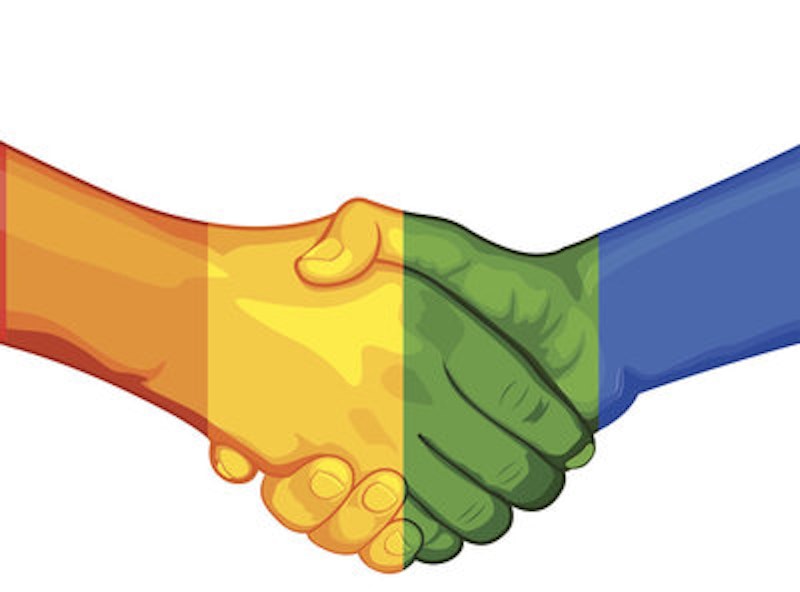A few weeks ago, after followed to the door of my building by a random street harasser, I ordered some mace (hot pink, because I’m that queer you know) and posted about it on Facebook. “Having mace delivered to my door because cis[gender] men are traaaaaaaash,” I fumed. “Sorry not sorry guys.” Over 40 of my friends liked and commented on the post, ranging from cis men to nonbinary transfem folks. (One guy learned what “cis” meant, so hey! Teachable moment.) It was a nice way to vent my frustrations and to reassure myself that I had some support from friends.
But two people I’ve known online for about a decade took issue with my language. “I’d hate for you to alienate people who want to support you,” one gently chided. They flipped the situation around: if I saw a post that said trans people were gross, I wouldn’t like that, right?
What followed was a lengthy comment thread in which several friends and I explained at length that this comparison is basically the old apples and oranges bit, though an extremely common one among allies: there is no comparison to be made between a marginalized person saying “This group of people that systematically abuses me and my peers is terrible” and a person from that group disparaging the abused. Because women (both cis and trans) face such ever-present threats from cis men in general, falling back on the now-tired #NotAllMen excuse is unhelpful at best (because it distracts from those who are actually the point of the conversation) and harmful at worst, in that it delays actual solutions—during which time, more marginalized people will be hurt.
My friend left that conversation with a better understanding of how to be a good ally, and how tone policing doesn’t help solve problems. It was slightly uncomfortable, but hey! If we don’t push boundaries, we’re not going to solve jack. It was a good feeling. And then the one fragile cis boy waded in to ruin everything.
Ignoring everything that had been posted, my friend—let’s call him Jack—chose to police my tone and accuse me of being just as bad as those who marginalize me, essentially wagging his finger and reminding me of the Golden Rule. By attacking a group and not individuals, he wrote, “You immediately put people on the defensive who might otherwise have been empathetic to your argument.” Generalizations can never be helpful, only harmful, to society; “Reflect on that, please.”
Now, for the record, my original post never said that all cis men were trash; this man simply chose to interpret it that way. Being a moderately rational human being who just happens to be going through my second puberty in as many decades, I understand that not all cis men are terrible; I voluntarily hang out with several on a regular basis, and talk and work with many more who are not actively sacks of trash. My point, of course, was that of the people I need to worry about on a daily basis, almost all of them are men: that guy who followed me home and still lives on my block; the former friend who groped me in a bar; Donald Trump.
But not only did this guy condescendingly explain that I shouldn’t hurt my allies’ feelings, he stated that whether or not I had allies at all would depend on the tone of my discourse. For the record: if your cis ego is so mightily bruised by my frustration at a society which regularly dehumanizes and murders trans people that you’d see fit to rescind your alliance, you weren’t actually my ally in the first place. You were a fair-weather friend who didn’t have the guts to understand my anger and help eradicate its source.
Later, Jack sent me a private message to explain himself. Not why he’d sent such poorly informed comments in the first place, but to amp up his rhetoric and spell out why he’d unfollowed my posts: what I’d written was hate speech.
What.
“’I’m not racist, but…’ is how you sound right now, and it makes me sad,” said Jack, with a pitying headshake and sigh I could practically hear through the screen. So now I hadn’t only alienated potential allies—I’d actively promoted hate against his people.
That’s bullshit, Jack. We live in a society that’s built to cater to the whims of cis men, particularly those who are white. I should know; I passed as one for almost a quarter century, and things worked out in my favor a hell of a lot more often than the female, black, brown, or all-the-above people I knew. What you’re doing is called “punching down,” and it’s terrible. Comparing my oppression to your hurt feelings isn’t just a logical fallacy, it’s an insult to me and every other person that goes through life without the privilege you take for granted every day.
So allies, look on this as a cautionary tale. Don’t be like Jack. Work to develop your empathy for people with less privilege than yourself. If you find yourself taken aback by their words, ask yourself why—and then find out how you can help. Allies are necessary to our struggle, but we need people who will help us tear down the walls that divide us, not dump bricks on our heads from up on the ramparts.
—Follow Sam Riedel on Twitter: @SamusMcQueen

